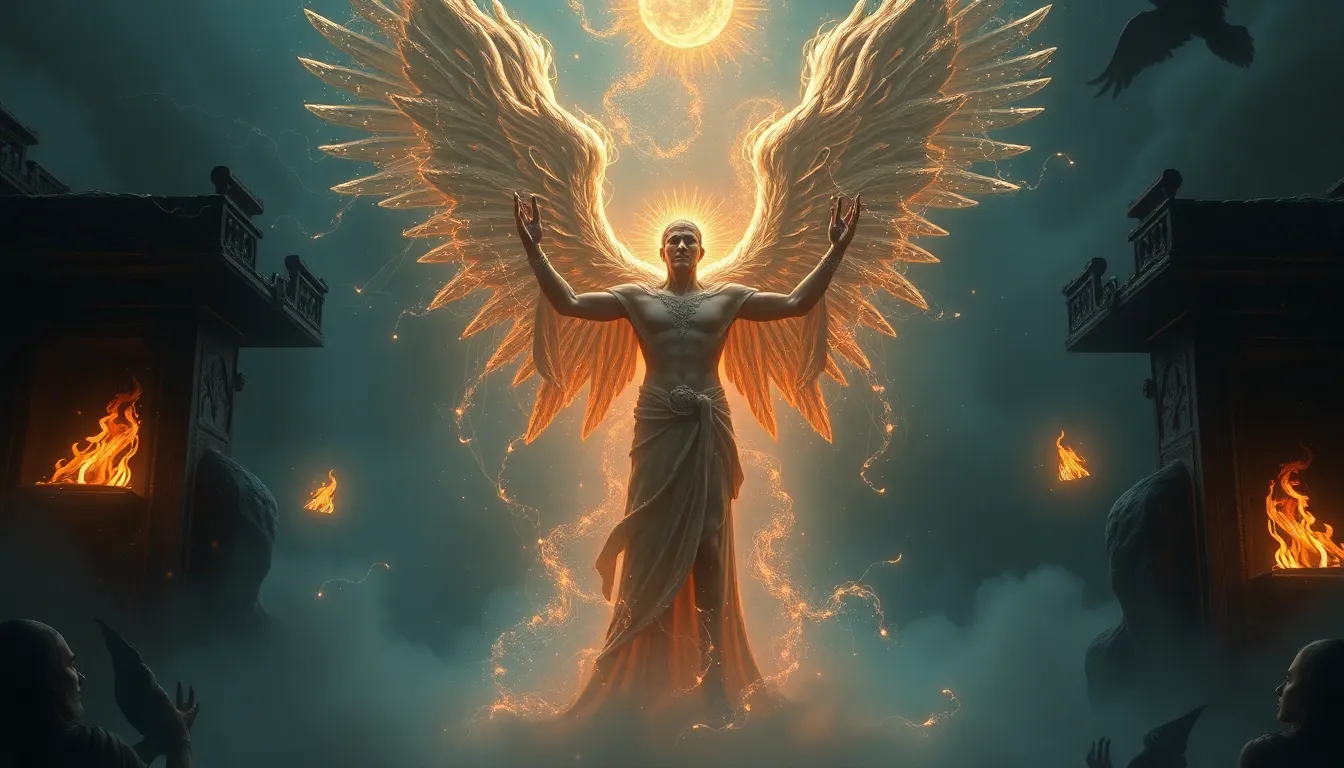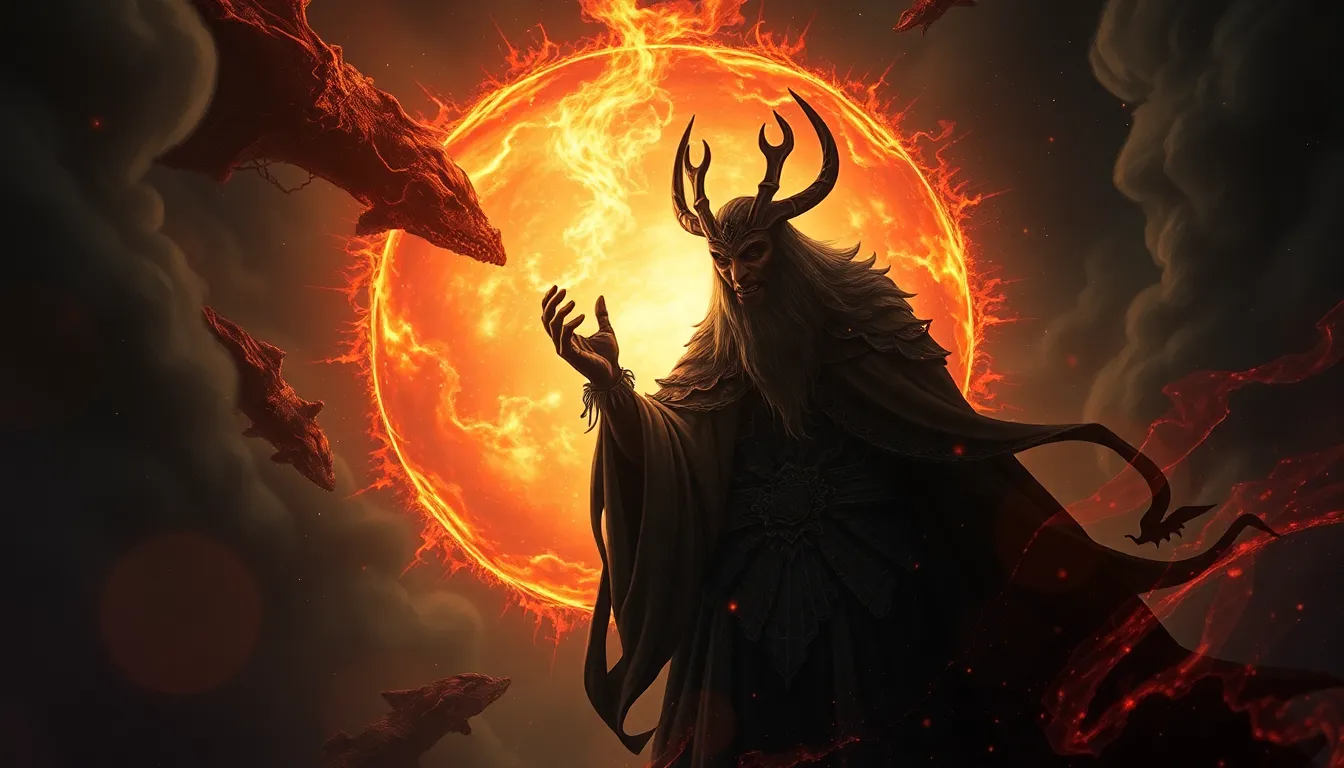Divine Punishments That Will Leave You Breathless: An Exploration of Mythology and Morality
I. Introduction
Divine punishment is a concept that has pervaded human thought across various cultures and epochs. It refers to the idea that deities enact consequences on individuals or societies for immoral actions or transgressions against divine law. This phenomenon serves not only as a narrative device but also as a moral compass, shaping ethical behavior through the fear of retribution.
This article explores the intricate tapestry of divine punishment across different cultures, examining its role in ancient mythologies, psychological implications, literary representations, and cultural perceptions. By delving into these themes, we can better understand the enduring fascination with divine accountability and the moral lessons embedded within these narratives.
II. The Role of Divine Punishment in Ancient Mythologies
Throughout history, many cultures have illustrated divine punishment through their mythologies. These stories often serve as cautionary tales, reinforcing societal norms and ethical standards.
A. Greek Mythology: The Furies and their Relentless Vengeance
In Greek mythology, the Furies (Erinyes) were formidable deities who executed vengeance upon wrongdoers, particularly those who committed familial crimes. Their relentless pursuit of justice exemplifies the belief that divine forces actively punish transgressions. Notable stories include:
- The punishment of Orestes for the murder of his mother, Clytemnestra, which showcases the inescapable nature of divine vengeance.
- The eternal torment of Prometheus, who stole fire from the gods, illustrating the severe consequences of defiance against divine authority.
B. Norse Mythology: The Consequences of Loki’s Betrayal
Norse mythology presents divine punishment through the actions surrounding Loki, a trickster god whose betrayals lead to catastrophic consequences. His role in the death of Baldr results in his punishment by the other gods, as he is bound and tortured until the end of the world (Ragnarok). This narrative highlights themes of loyalty, betrayal, and the harsh realities of divine justice.
C. Egyptian Mythology: Ma’at and Cosmic Justice
In ancient Egypt, the concept of Ma’at represented truth, balance, and cosmic order. The judgment of the deceased involved weighing their hearts against the feather of Ma’at. A heart heavier than the feather indicated a life of wrongdoing, leading to divine punishment. This illustrates the importance of ethical living and the belief in cosmic justice.
III. The Psychological Impact of Divine Punishments
Divine punishments resonate deeply within the human psyche, often instilling fear and moral introspection.
A. Fear as a Tool for Moral Guidance
Many religions and cultures have utilized the fear of divine retribution as a means to promote ethical behavior. This fear can lead to:
- Increased adherence to moral codes.
- Social cohesion through shared beliefs in justice.
B. The Relationship Between Suffering and Redemption
Suffering is often portrayed as a pathway to redemption in many cultures. The idea that one can learn and grow from divine punishment encourages individuals to reflect on their actions and seek atonement.
C. Case Studies on Historical Societal Reactions
Throughout history, societies have reacted to perceived divine punishments with various responses, from introspection and reform to scapegoating and persecution of marginalized groups.
IV. Literary Representations of Divine Punishment
Literature has long depicted divine punishment, often exploring the complexities of morality, sin, and consequence.
A. Dante’s “Inferno”: An Allegorical Journey Through Sin and Consequence
Dante Alighieri’s “Inferno” illustrates a vivid depiction of divine punishment through its structured levels of Hell, each reserved for different sins. This work serves as a profound exploration of justice and morality.
B. The Book of Job: Faith Tested Through Suffering
The Book of Job presents a narrative where Job, a righteous man, faces immense suffering as a test of faith. It raises questions about divine justice and the reasons behind suffering.
C. Modern Interpretations in Literature and Film
Contemporary works often reinterpret these themes, questioning traditional notions of divine punishment and exploring moral ambiguity. Examples include:
- Films like “The Seventh Seal” that explore existential themes.
- Books that challenge the concept of a punitive deity.
V. Historical Incidences of Perceived Divine Punishments
Throughout history, societies have often linked natural disasters and social upheavals to divine wrath.
A. Natural Disasters as Divine Wrath: Case Studies
Events such as earthquakes, plagues, and famines have frequently been interpreted as signs of divine punishment. Historical instances include:
- The Black Death in Medieval Europe, often seen as punishment for sin.
- Earthquakes in ancient civilizations believed to be the wrath of gods.
B. Social Upheaval and Plagues Throughout History
Social upheaval, such as revolutions and wars, has also been perceived as divine punishment for societal moral decay.
C. The Role of Scapegoating in Cultural Narratives
Scapegoating often arises in times of crisis, as societies seek to attribute suffering to particular individuals or groups, reinforcing the notion of divine punishment.
VI. Divine Punishments in Religious Texts
Religious texts provide foundational narratives that illustrate divine punishment and its implications for believers.
A. The Old Testament: Sodom and Gomorrah
The destruction of Sodom and Gomorrah serves as a powerful warning against immorality, highlighting the belief in divine accountability.
B. Hinduism: The Cycle of Karma and its Consequences
In Hinduism, the concept of karma dictates that every action has repercussions, leading to a cycle of rebirth and divine justice.
C. Buddhism: The Concept of Suffering and Attachment
Buddhism teaches that suffering arises from attachment and desire, and through understanding this, individuals can seek liberation from the cycle of suffering.
VII. Cultural Variations in the Perception of Divine Punishment
The perception of divine punishment varies widely across cultures, shaping societal norms and moral frameworks.
A. Eastern vs. Western Beliefs
Eastern philosophies often emphasize balance and cyclical justice, while Western traditions may focus on retribution and moral absolutes.
B. The Impact of Cultural Narratives on the Interpretation of Justice
Cultural narratives significantly influence how societies interpret justice and divine punishment, shaping individual and collective beliefs.
C. Contemporary Views on Divine Retribution
In modern times, views on divine punishment have evolved, with many questioning the morality of a punitive deity and exploring alternative understandings of justice.
VIII. The Ethics of Divine Punishment
The concept of divine punishment raises profound ethical questions regarding morality and justice.
A. The Moral Implications of a Punitive Deity
The existence of a punitive deity challenges the notions of a benevolent god, leading to debates on the nature of divine justice.
B. The Debate Between Justice and Mercy
This debate delves into the balance between justice and mercy, exploring how divine punishment aligns with human concepts of fairness.
C. Modern Philosophical Discussions
Contemporary philosophers continue to engage in discussions about the implications of divine punishment, often questioning the morality of divine retribution in light of human ethics.
IX. Case Studies of Divine Punishment in Popular Culture
Popular culture reflects and shapes societal attitudes toward divine punishment through various mediums.
A. Films and TV Shows that Depict Divine Retribution
Numerous films and television series explore themes of divine punishment, often portraying characters facing moral dilemmas that lead to consequences. Examples include:
- “The Ten Commandments,” which depicts the consequences faced by the Pharaoh of Egypt.
- “Supernatural,” where characters often confront divine entities and their judgments.
B. Video Games that Involve Moral Choices and Consequences
Video games like “BioShock




